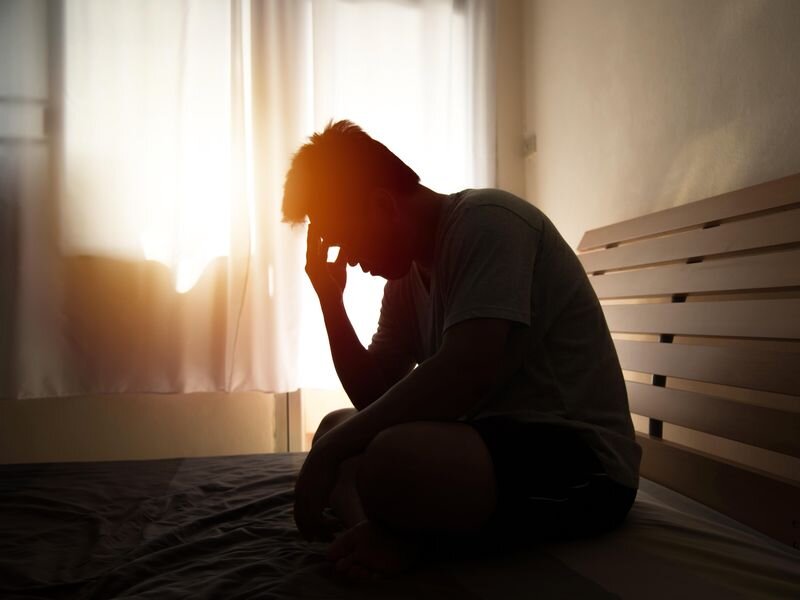
When depression hits, everyday activities like working, socializing, sleeping and even eating can become a daunting challenge.
George Mason University clinical psychologist James Maddux treats patients with clinical depression in his practice. He said, “The problems with both depression and anxiety are the result of what people think about. These thoughts lead to feelings that also affect behavior.”
So how can you deal with the emotional, mental and physical impacts of depression? Maddux shares some scientifically backed self-care tips that you can use when you or a loved one begin experiencing a bout of depression.
What is depression?
The National Alliance on Mental Illness (NAMI) states that depression is a serious mental health disorder, and the leading cause of disability in the United States today. It affects about 21 million adults across the country.
The causes of depression are diverse and can include:
- Relationship issues
- Drug and alcohol abuse
- Sudden life changes
- Certain medications
- Changes in the brain’s frontal lobe activity
- Pituitary gland and hypothalamus hormonal responses
Medical conditions such as anxiety, attention-deficit/hyperactivity disorder (ADHD), hypothyroidism and chronic pain can also trigger depressive episodes.
Depression symptoms
Just like the causes of depression, the condition’s symptoms are wide-ranging and vary from person to person, according to NAMI. The signs of depression include:
- Changes in sleeping and eating patterns
- Feelings of hopelessness
- A lack of motivation and interest in everyday activities
- Suicidal thoughts
- Trouble concentrating
- Decreased activity levels
- Agitation and a lack of energy
- Physical pain
If you’re experiencing any of these symptoms, it’s important to seek help because depression does respond to treatment. Your therapist or another health care provider can check for signs of depression and help you put together a plan to address your depression.
How to deal with depression
For the person with depression, Maddux recommends several self-care strategies that are part of a type of therapy known as cognitive behavioral therapy (CBT), which aims to help people identify negative thinking patterns and change them.
- Self-Monitoring: “CBT is typically a very structured type of therapy,” Maddux noted. He said that self-monitoring of thoughts and feelings is one very important part of it. “The assumption is that as we become more aware of what we are thinking and feeling, then we’ll be able to assume more control over it.”
- Goal-Setting: Feeling better about your ability to achieve things is the intention behind goal-setting. “We would identify your specific goals, and help you do one or two things this week that would give you a sense of accomplishment. Such as your goal this week is to take a 10-minute walk, four days a week,” Maddux said.
- Sleep: There’s a key lifestyle change that Maddux considers integral to treating depression. “A big focus is helping people get better quality sleep; helping a person get on a more regular going to bed and waking up schedule,” he said.
- Self-help books: One of the books Maddux recommends most for people who come to him for depression is The Cognitive-Behavioral Workbook for Depression.
- Exercise: “In the case of depression, one of the results of being depressed is that the person can become inactive,” Maddux explained. “Research shows [exercise] is one of the best antidepressive measures a person can engage in.”
NAMI states that interpersonal therapy to help improve relationships and psychodynamic therapy to address negative patterns of behavior from the past can be used alongside CBT to help treat depression.
In addition, a depression medication may also be prescribed by your doctor to help you manage and improve your symptoms. They include selective serotonin reuptake inhibitors (SSRIs) like Prozac, and serotonin and norepinephrine reuptake inhibitors (SNRIs) like Cymbalta.
Helping a loved one with depression
“One of the problems with depression, in particular, is that the person with depression often resists taking advice,” Maddux said. “When people are depressed, they usually have difficulty believing that things are going to get better.”
He noted that for loved ones of people with depression, this means that “the best thing a person can do is to learn how to be a good listener. What I mean by good listener is really provide some empathy, but also resisting giving advice unless a person asks for it.”
Copyright © 2023 HealthDay. All rights reserved.
Source: Read Full Article
